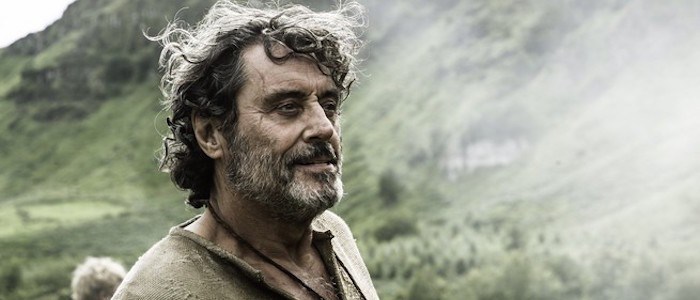by: Michael Shields
To conclude Across the Margin’s week long ode to cinema, the most affecting film of 2016, Garth Davis’ Lion, is given its just due…

“I wonder what worlds you’ve traveled in.”
At their best, movies have the power to transport viewers to a place they have never been. They have the capacity to enable, when crafted with guile, the viewer to see the world through a different set of eyes, and to understand how singular the journey of other people’s lives truly are. Movies have the potential to provoke empathy and fathom, in a peripheral but authentically impactful way, the extreme hardships that confront so many of us everyday. These phenomenal abilities of film, where they act as a means of transference and benefactor of benevolence, can be found emphatically emanating from one of the most heart-wrenching and gripping films not only to be released this past year, but to ever be made, Garth Davis’ Best Picture contender, Lion.
Lion is the real life story of a man’s quest to be reunited with his family whom he was separated from twenty-five years prior. As we eventually learn from Lion, the feature length directorial debut of Australian filmmaker Garth Davis (television’s Top of the Lake), 80,000 children go missing each year in India, and one of those children in the year 1986 was five-year-old Saroo Brierley. Saroo’s unthinkable odyssey begins when he is separated from his brother, Guduu, and carried on a train over one thousand miles from his home and deposited in a foreign city where he has nowhere to turn for help. Lion was adapted from Saroo Brierley’s book, A Long Way Home, about his harrowing experience, and it is in the first half of the film, where a shaken and vulnerable Saroo (played extraordinarily by newcomer Sunny Pawar) attempts to maneuver the perilous streets of Kolkata, where everyone speaks Bengali rather than Saroo’s Hindi dialect, where Lion hits the hardest.
Shot beautifully, with purpose and precision, by Australian cinematographer Greig Fraser (Foxcatcher, Zero Dark Thirty, Rogue One: A Star Wars Story), time spent with Saroo as he maneuvers through hulking, pressing crowds while he desperately calls for his mother and brother is all consuming, and wholly troublesome. Fear and confusion envelope Saroo as he is forced to sleep on a cardboard box in the streets, evade kidnappers with sinister intentions, and sift through mountains of refuse for food and resources. And all the while we, the viewers, are right there with Sarro, forced to exhaustively endure his unfathomable quest to survive. It is exceedingly difficult to comprehend how Saroo was able to persist amid such horrors, but his fierce determination, and his will to survive, sustain him through the darkest of times, until he is ultimately adopted by an Australian couple who give him a home, and the love he was so desperately lacking.
The second, and very distinct, half of the film finds an older Saroo (Dev Patel) in detective mode, struggling to find both himself and track down his birth family with the help of Google Earth. Saroo, determined to the point where the hunt is wearing on him mentally and affecting his relationship with his girlfriend (Rooney Mara), sifts through maps and calculates search areas day and night. Incredibly, and all credit due to Garth Davis’ cunning direction, the investigation that marks the remainder of the film further frames Saroo’s experience as a child, putting in broader perspective how astonishing his quest was, and how implausible it was that he made it through.
There is a speech that I watch annually that affects me deeply, and that has acted as a guiding light for how I choose to look at life. This speech, made by legendary college basketball coach Jimmy Valvano on the cusp of cancer snatching this gem of a human from our grasp, expounds on what it means to truly live. While accepting the inaugural Arthur Ashe Courage and Humanitarian Award at the first-ever ESPN ESPY Awards, Jimmy V highlighted three things that a person can, and should, do each and every day to fully experience the offerings of this world. Jimmy V implored us that evening to “laugh every day” and to “spend some time in thought.” And, he begged each of us to take time each day to “have [our] emotions moved to tears, could be happiness or joy.” It is here in this final piece of his three point plan, where I cannot help thinking of Lion.
I think of Lion when I think of Jimmy V’s monumental speech, because Jimmy V urged us all to allow the beauty of this world, or the pain it too often holds, to affect us unabashed. He yearned for us to embrace our feelings and the reactions that overcome us. He asked us to feel. To truly feel. And Lion has within it the potency to affect the viewer deeply in this way. Because in Lion, I felt so deeply as Saroo wandered the streets rife with those who prey on children, entirely alone in the world. I felt as an older Saroo apologized to his adoptive mother (Nicole Kidman) for not living up to what she may have expected of him, explaining that, unlike a child she could have bore into the world, he and his brother “weren’t blank pages,” that she was not just adopting them but their pasts as well. I felt as she in turn assured Saroo that he is all she could have ever wanted. And I felt, triumphantly so, when Saroo was reunited with his birth mother upon finally locating his long sought after hometown, astonishment and utter relief coursing through their bodies…in what was as moving a scene to ever grace the silver screen.
It is absolutely remarkable how one of the quietest films I have ever happened upon – particularly in the first half of the film where a young Saroo wanders the world alone – was the film this year that to me made the loudest of impacts. But such is the power of Lion. Earlier in the week, amongst Across the Margin’s ode to the greatest films of 2016, I gave a tip of the hat to both Arrival and Hell or High Water. And while these two films captivated and affected me deeply, no film touched me in the way in which Lion did all year long, for it is a cinematic experience that cuts to the core, and has the might to warm even the coldest of hearts.





